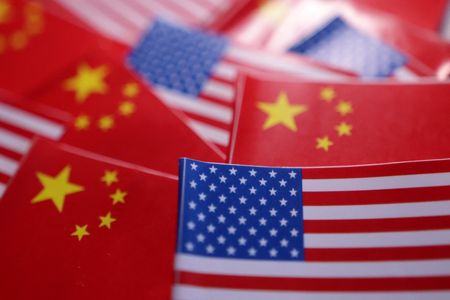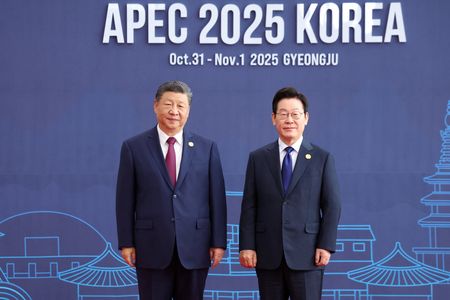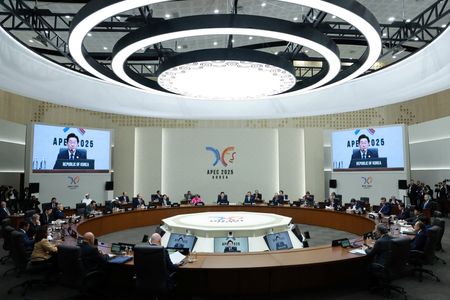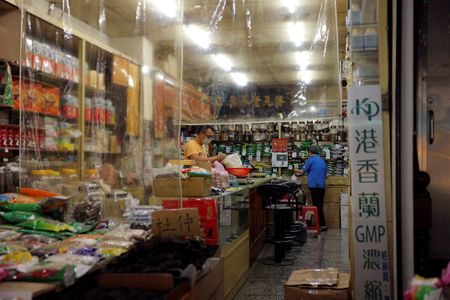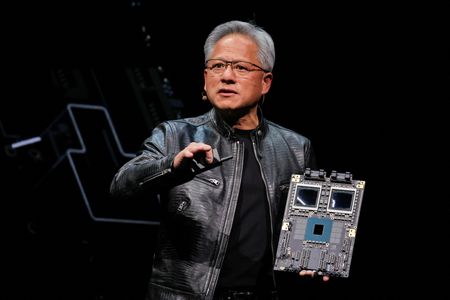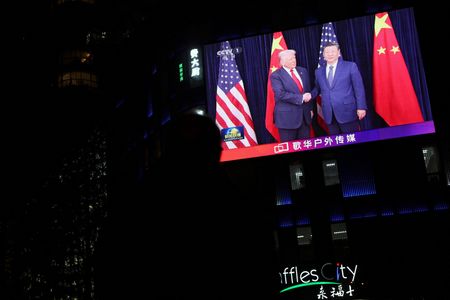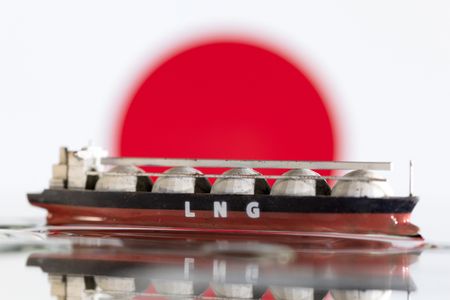By Doina Chiacu, Maiya Keidan and Alexandra Alper
(Reuters) -Washington’s decision to delay a rule on export restrictions for Chinese companies, announced by China after Thursday’s summit meeting with U.S. President Donald Trump, could end up making the measure ineffective, former U.S. officials said.
The one-year suspension of the so-called affiliates rule, which had sought to prevent sanctioned Chinese companies from using subsidiaries to bypass U.S. controls on tech exports, would give those companies the breathing room they need to create workarounds, the officials said.
The rule, unveiled on September 29, barred Chinese firms at least 50% owned by sanctioned companies from receiving U.S. tech exports. It drew strong opposition from Beijing.
“This pause may give Chinese entities sufficient time to reorganize corporate structures and holdings to circumvent any re-imposition of the (rule),” said Nazak Nikakhtar, who served at the Commerce Department during Trump’s first term.
“Chinese companies have, over the years, become very adept at circumventing U.S. laws,” she added.
The rule was suspended as part of the summit between Trump and Chinese leader Xi Jinping in South Korea, in exchange for China delaying its restrictions on rare earth mineral exports, Treasury Secretary Scott Bessent said on Thursday.
“Yes, we are going to be suspending that for a year in return for the suspension …on the rare earth licensing regime,” he told Fox Business Network.
The measure, which had long been sought by China hawks in Washington, hit 20,000 additional Chinese firms with U.S. export restrictions, vastly expanding the universe of blacklisted China-linked parties from the previous 1,300, according to a recent report from WireScreen.
“(The delay) could significantly limit the national security benefits that proponents of the rule were hoping for,” said Saif Khan, who served as director of Technology and National Security at the White House National Security Council under former President Joe Biden.
Trade lawyer Dan Fisher-Owens cautioned, however, that U.S. companies may still be wary of resuming shipments to Chinese firms affected by the affiliates rule.
“This heightened awareness, and the potential for re-imposition if negotiations sour, may prevent a return to business as usual with affected affiliates,” he said.
(Reporting by Doina Chiacu, Maiya Keidan and Alexandra Alper; Editing by Edmund Klamann)

